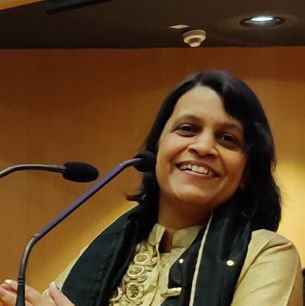Technical Writing and Communication Skills
Course Attendees
Still no participant
Course Reviews
Still no reviews
Technical Writing and Communication Skills
Code(Credit) : PGS 502(0-1-0)
Course Objectives
- To develop the skills to communicate and articulate in English
- To equip the students/scholars with skills to write dissertations and research papers
Course Outcomes
Upon completion of the program, students/scholars will possess the skills necessary to write effective dissertations and research papers, demonstrating a high level of proficiency in written and verbal English communication.
| COs | Course Outcomes |
Mapping COs with POs
|
| CO1 | Articulate thoughts and ideas with confidence and clarity, both in written and spoken forms, enabling effective communication in academic and professional settings | PO4 (Communication and Extension Skills) |
| CO2 | Craft well-structured and impactful dissertations and research papers | PO5 (Team Work), PO7 (Data Handling ) |
Course Syllabus
Module I
Technical Writing- Various forms of scientific writings- theses, technical papers, reviews, manuals, etc; Various parts of thesis and research communications (title page, authorship contents page, preface, introduction, review of literature, material and methods, experimental results and discussion); Writing of abstracts, summaries, précis, citations etc.; commonly used abbreviations in the theses and research communication; illustrations, photographs and drawings with suitable captions; pagination, numbering of tables and illustrations; writing of numbers and dates in scientific write-ups; Editing and proof-reading; Writing of a review article, presentation of scientific papers.
Module II
Communication Skills-Grammar(Tenses, parts of speech, clauses, punctuation marks); Error analysis(Common errors); Concord; Collocation; Phonetic symbols and transcription; Accentual pattern: Weak forms in connected speech
Module III
Participation in group discussion; Facing an interview
Session Plan
Session 1
Technical Writing- Various forms of scientific writings- thesis, technical papers, reviews, manuals, etc :
Task:
Design formats of various forms of scientific writings and describe of each form, highlighting their purpose and characteristics with suitable examples.
References:
Orientation: https://youtu.be/Twc2S88zuGo
Thesis writing: https://www.ldeo.columbia.edu/~martins/sen_sem/thesis_org.html
Technical Papers: https://homes.cs.washington.edu/~mernst/advice/write-technical-paper.html
Review Paper writing: https://www.einsteinmed.edu/uploadedFiles/education/student-affairs/Registrar/Format%20for%20a%20review%20paper%20(attach%20to%20F204).pdf
Session 2
Various parts of thesis and research communications (title page, authorship contents page, preface, introduction, review of literature, material and methods, experimental results and discussion):
Task:
Students will explore the various parts of thesis, research communications, and write a thesis on their area of study.
Session 3
Writing of abstracts, summaries, précis, citations :
Task:
Students will choose a scholarly article and create an abstract, summary, and précis of the key points. They will also practice generating accurate citations in a specified format (e.g., APA or MLA).
Reference:
Abstract writing: https://writing.wisc.edu/handbook/assignments/writing-an-abstract-for-your-research-paper/
Summary writing: https://www.scribbr.com/working-with-sources/how-to-summarize/
Précis writing: https://gradecrest.com/precis-writing-guide/
Citations: https://www.scribbr.com/citing-sources/citation-styles/
Session 4
Commonly used abbreviations in the thesIs and research communication; illustrations, photographs and drawings with suitable captions:
Task:
Students will curate a collection of illustrations, photographs, and drawings on their areas of study. Discuss on abbreviations, along with suitable captions.
References: https://www.scribbr.com/dissertation/list-of-abbreviations/
Session 5
Pagination, numbering of tables and illustrations; writing of numbers and dates in scientific write-ups:
Task:
Students will download articles on their areas of interest and format it with proper pagination, accurate numbering of tables and illustrations, and consistent use of numerical representation and date formatting.
Reference: https://graduateschool.nd.edu/assets/283522/wfrw_ii_figures_and_tables.pdf
Session 6
Editing and proof-reading:
Task:
Students will write a report and they will compare and analyze the suggested edits, corrections, and recommendations provided by Quill Bot and Grammarly. Students will then revise their work accordingly, incorporating the feedback to enhance grammar, clarity, and overall writing quality.
Reference:
Difference between Editing & proof-reading: https://youtu.be/L5bvO7_3huA
https://www.slideshare.net/RussellRodrigo3/editing-and-proofreading-79883056
Session 7
Writing of a review article :
Task:
Students will select a topic of interest within their field of study and conduct thorough research to gather relevant information. They will then organize and synthesize the collected data to write a comprehensive review article.
Reference: https://youtu.be/kExJSYtv0ck
Session 8
Presentation of scientific papers:
Task:
Students will design a presentation using tools like Canva and Google slides and design a presentation on any research paper of their choice.
Reference: https://karger.com/ced/article/35/3/202/547/How-to-Prepare-and-Deliver-a-Scientific
Session 9
Grammar(Tenses, parts of speech, clauses, punctuation marks); Error analysis(Common errors); Concord; Collocation:
Assessment: Online Test
Practice Test: https://www.test-guide.com/english-grammar-practice-tests.html
References:
Tenses: https://youtu.be/PQG_gYFePD4
Parts of speech: https://youtu.be/v9fCKTwytJA
Clauses: https://byjus.com/english/clauses/
Punctuation Marks: https://youtu.be/1aa--jf4CjY
Error Analysis: https://youtu.be/O3fBvxRNBkE
Concord: https://youtu.be/YFP-MBSl14M
Collocation: https://www.englishclub.com/vocabulary/collocations.php
Session 10
Phonetic symbols and transcription; Accentual pattern: Weak forms in connected speech
Task:
Use the link to practice pronounciation of individual sounds:
https://icspeech.com/phonetic-symbols.html
References:
Phonetic symbols and transcription: https://www.phon.ucl.ac.uk/home/wells/transcription-ELL.pdf
Accentual pattern:
https://docs.google.com/presentation/d/1hW53DoPzZ-ydyWLiughixVUBEsp9ii88g92fhyEir0M/htmlpresent
Weak forms in connected speech:
Session 11
Group discussion:
Task (Mock GD):
Students will be divided into small groups and assigned a trending topic. Each group will engage in a structured discussion, taking turns to express their viewpoints, actively listen to others, and offer constructive feedback. Students will be assessed based the GD criteria.
References:
What is GD: https://youtu.be/3rbDgLzWKMU
Process of GD: https://youtu.be/7TTnYgkLYUs
Types of Group Discussion: https://youtu.be/g53yJbvoyxs
Evaluation Criteria:https://youtu.be/ytptSmQnccY
Do's and Don'ts: https://youtu.be/v9Gq6k15tu4
Tips to Master Group Discussion:https://youtu.be/3w32jIsRlsw
Practice Topics with sample answers: https://www.indiabix.com/group-discussion/topics-with-answers/
Session 12
Interview Preparation:
Task : Mock interview I-Technical
Mock interview II- Non Technical
In both the rounds students will gain know;edge on industry specific job and prepare relevant interview questions. After preparation students will practice asking and answering questions, demonstrating effective communication, active listening, and professionalism. Respective panel will also provide constructive feedback.
References:
Interview Preparation : https://in.indeed.com/career-advice/interviewing/interview-preparation
https://prepinsta.com/interview-preparation/
Tips : https://youtu.be/MsZh5Ll1IwE
FAQ's: https://youtu.be/CwUBnhDVKTg
Our Main Teachers

Prof. Prajna Pani obtained her doctorate from Utkal University in 2008. Her specialisations include Linguistics and ELT and 20th C British Literature. She has invested 21 years to teaching, mentoring, training and development. She is associated with ELT@I, Asia TEFL and GRDS. She is one of the editors of CFTRA Global. She is drawn in […]

